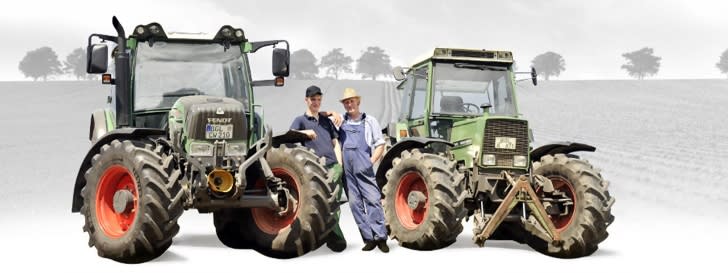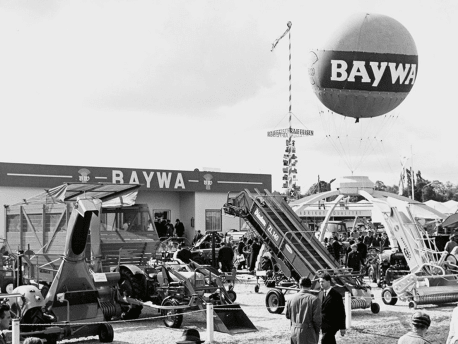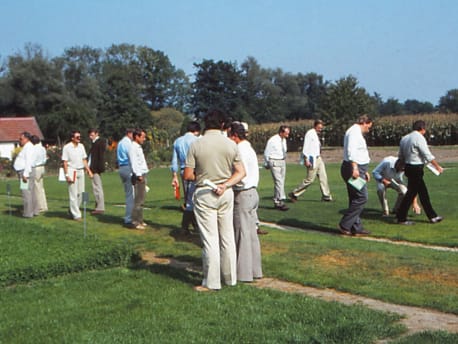
Setting the pace of progress

Machinery designed to reduce workloads is a hit
Rural flight and urbanisation, which led to a decrease in the number of farm workers, and constantly larger farms were two of the main reasons for the mechanisation of agriculture. As a result, BayWa’s agricultural equipment business picked up steam in the 1950s.
Tractors, combines, forage harvesters and milking machines were all in particular demand. Despite repeated dips whenever market prices for agricultural produce fell, demand for machinery continued to increase over the years. Demand shifted from machines that provided tractive power to machines designed to reduce workloads in order to compensate for the shortage of labour.
Technology aimed at making farms and homes more efficient was also becoming more and more important. BayWa was there to help, offering practical advice and constantly expanding its agricultural-equipment maintenance and service offerings.
Animal keeping was also growing more and more professional. While demand for hay and straw decreased, demand for animal feed grew. Seed sales skyrocketed, not only for grain, but also for field forage, catch crops and grasses. BayWa had already started producing seed in California.
BayWa grows and trains employees
BayWa evolved into a major employer in rural areas and constantly hired new employees. As a result, the company’s workforce exceeded 8,000 by the end of the decade. Training and continuous professional development became increasingly important. In 1960, BayWa employed some 1,200 apprentices. With a trainee ratio of around 15%, it was a leader across all sectors.

Mechanisation chains replace manual labour
In the 1960s, the automation of labour made rapid progress. BayWa supported farmers with innovative agricultural machinery, training and individual advice – a strategy and service that benefited both farms and the company itself. In this decade alone, BayWa sold 44,000 tractors as well as many combine harvesters and other agricultural machines.
With increasingly demanding agricultural engineering and growing numbers of manufacturers, BayWa workshops (of which there were now 300) were kept busy. Replacement parts warehouses had to be continuously expanded. A total of ten agricultural equipment consultants travelled around Bavaria informing farmers about technical developments and possibilities to meet their needs.
Bavarian crop production enjoys strong support to the present day, thanks to BayWa’s close collaboration with well-known seed-growing companies. Controlled seed propagation in Germany and abroad added to this as did the constant work to develop and refine high-performance animal feed for poultry and pig farming.

BayWa: the industry’s EDP leader
BayWa developed at lightning speed. The portfolio grew, as did the number of different roles required by BayWa, and employees’ duties grew more and more diverse.
In 1970, BayWa became the company in the industry to introduce electronic data processing (EDP), making extensive use of IBM page readers, which processed more than 100,000 receipts each day.
BayWa also continued to focus on training the qualified employees it needed. Its trainee ratio of 15% continued to be significantly above the national average at major companies.